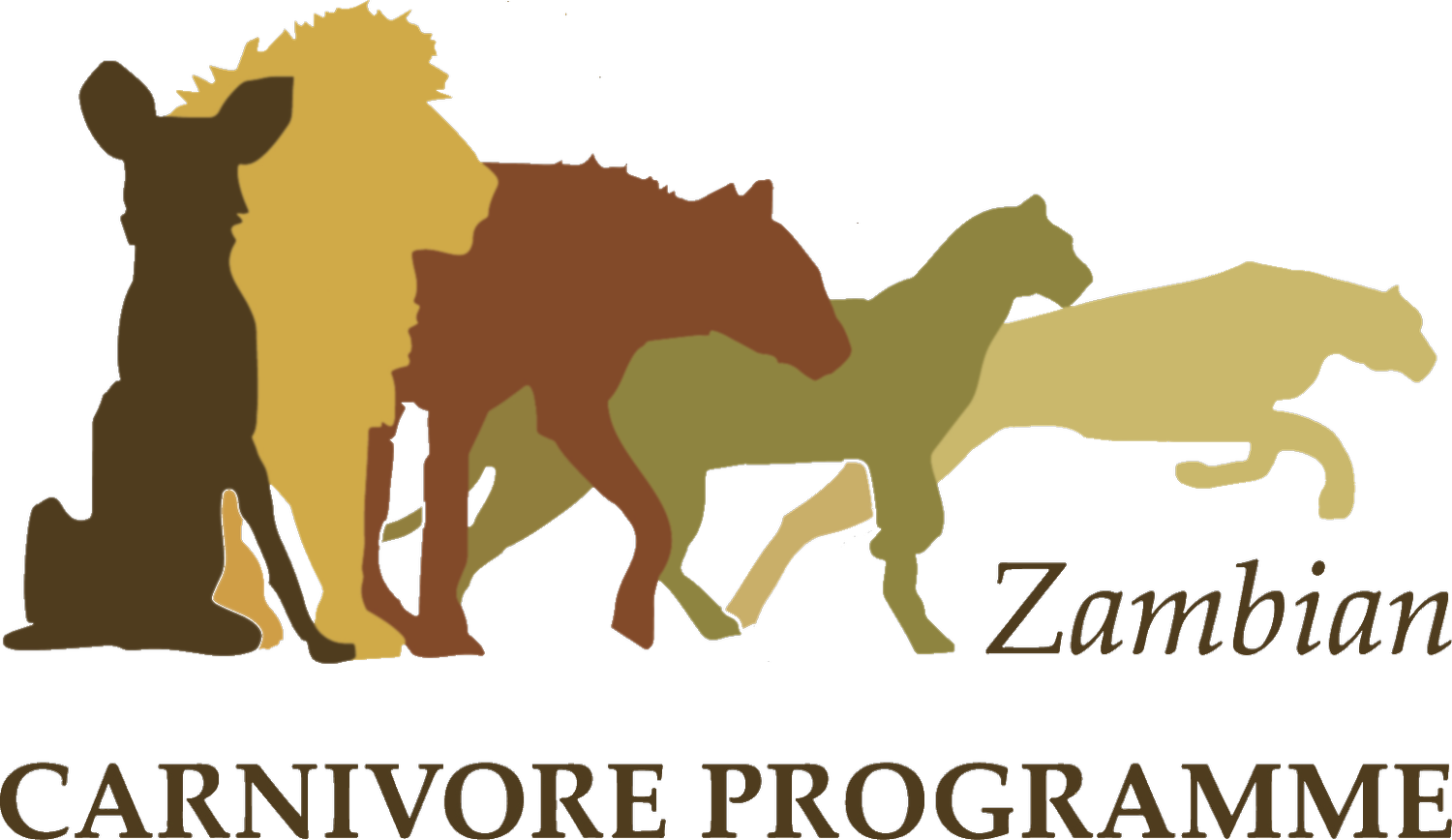Training Zambia’s Best and Brightest Wildlife Conservation Leaders
By: Anna Kusler, ZCP Kafue Project Manager
Notebook and pens in hand, the Luangwa Team takes notes during a Professional Development Training (PDT) session at DNPW’s SLAMU headquarters. Photo by: Thandiwe Mweetwa/ZCP
One of the core pillars of ZCP's work is the empowerment of aspiring local conservation leaders. Too often, the sustainability of research and conservation efforts is compromised because local communities are not effectively empowered and involved. This issue is particularly pronounced at the international level, where conservation and research efforts are often led by foreign nationals. But ZCP employs a comprehensive, multi-level approach to conservation that helps ensure sustainability through training, educating, sponsoring, and employing young Zambian wildlife professionals, from the primary and secondary school-level through to international graduate programs. Collectively, this helps to ensure that Zambia’s best and brightest have the opportunity to develop and contribute their talents to wildlife conservation now, and into the future. Essentially, we're working to empower young Zambian conservationists to lead Zambia's future conservation efforts.
With three long-term, field-based conservation projects each over a decade old, we can provide an unprecedented opportunity to build skills as conservation biologists, but leadership goes beyond just learning skills. As we all know, many traditional academic programs - both at the high school or university level - do not teach many "real life" skills as part of the curriculum, particularly for field-based careers. A university degree may ensure a theoretical understanding of ecological principles, but success in conservation and academia takes more than pure science coursework. Many of the nuances of being a successful professional have nothing to do with science. They are the "people" side of things: how to work and communicate in a team, how to lead and manage, how to set goals/objectives, how to communicate effectively, how to understand and utilize empathy, etc. Then there are the professional skills not often taught in a classroom setting: public speaking, science story-telling, the interface of science and the media, the nuances of professional writing, etc.
Screenshot of the online training platform that connected ZCP’s field teams with international expert presenters on a variety of leadership topics. Photo by: Jennifer Dillard/ZCP
Kafue Project Team Members participate in one of the trainings from the field. Photo by: Johane Njobvu/ZCP
“The Professional Development Training (PDT) helped us develop important new skills and as well as manifest certain capabilities we have as individuals. From learning how to work and communicate in a team, to how to become a leader. We believe these skills are critical in becoming successful young conservationists.” ~Kachama Banda/ZCP Kafue Field Ecologist and Conservation Education Coordinator
It is hard to find time to do this during the busyness of the dry season, but fortunately the rainy season allows us to slow down with fieldwork and shift focus to training. For two months of the rainy season, we embarked upon an ambitious online Professional Development Training (PDT) programme that included expert presentations from around the world. The point of this training programme is to expose our teams of young conservation professionals to concepts, ideas, and professional skills they often do not receive at secondary school or through a standard university conservation curriculum. At its core, this programme is a leadership-building initiative. All of these young individuals have been identified as future leaders in conservation, and through this initiative we hope to empower them to follow their dreams.
Liuwa Project Team Members participate in one of the trainings from the field. Photo: Daan Smit/ZCP
On behalf of the entire ZCP team, we would like to extend a heartfelt thank you to all of the expert presenters who graciously volunteered their time:
Patty Riexinger - Retired Director, Division of Fish, Wildlife and Marine Resources at New York State Department of Environmental Conservation
Dr. Cat Sun - Postdoctoral Researcher at the University of British Columbia Wildlife Coexistence Lab
Will Donald - Research Coordinator for Musekese Conservation
Betsy Ukeritis - Inter-regional Environmental Educator at New York State Department of Environmental Conservation
Jenny Fitzgerald - Director of Special Projects at Gallery Wild and Jackson Hole Wildlife Safaris
Dr. Linda Rayor - Senior Lecturer and Senior Research Associate at Cornell University's College of Agriculture and Life Sciences, Department of Entomology
Casey Anderson - American filmmaker, wildlife naturalist, television host, animal trainer and actor. He is the Creative Director of Vision Hawk Films
Carl Bowden - Founder/Leadership Coach and Consultant at Exemplify Leadership





